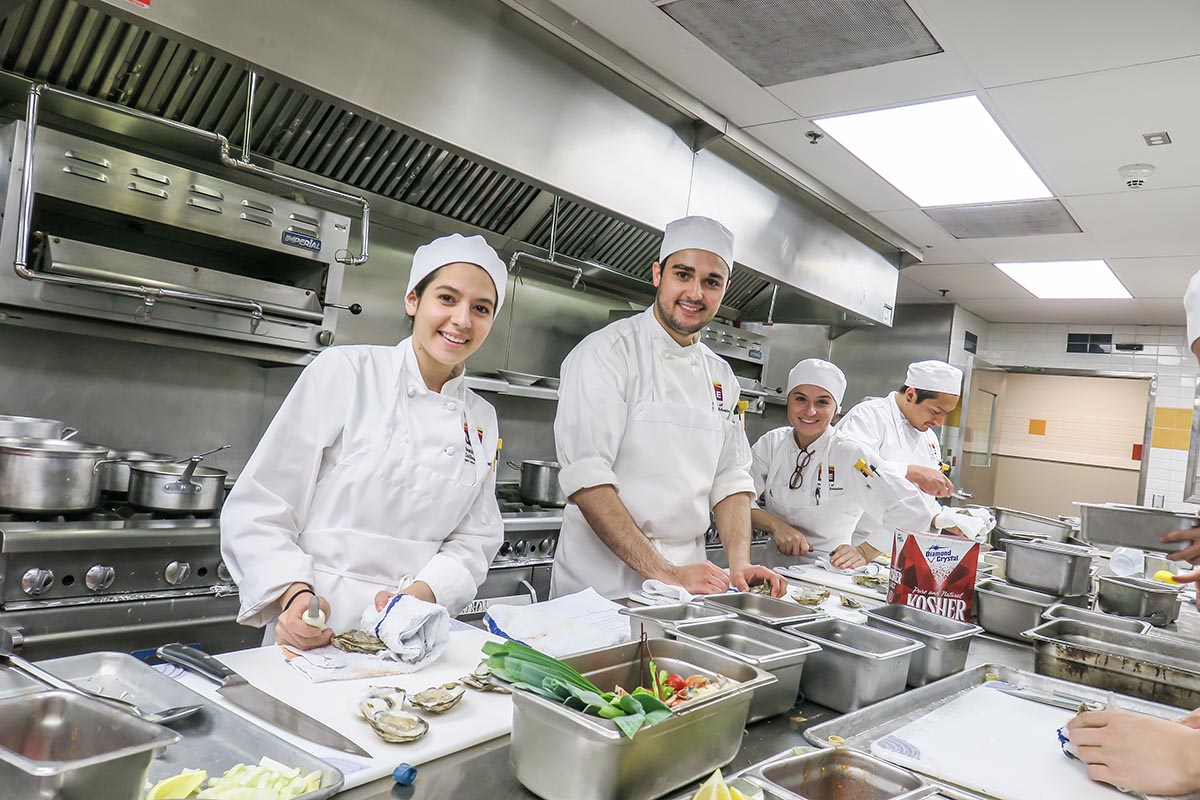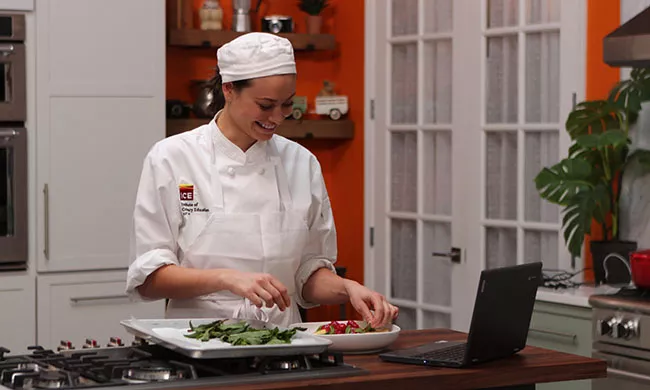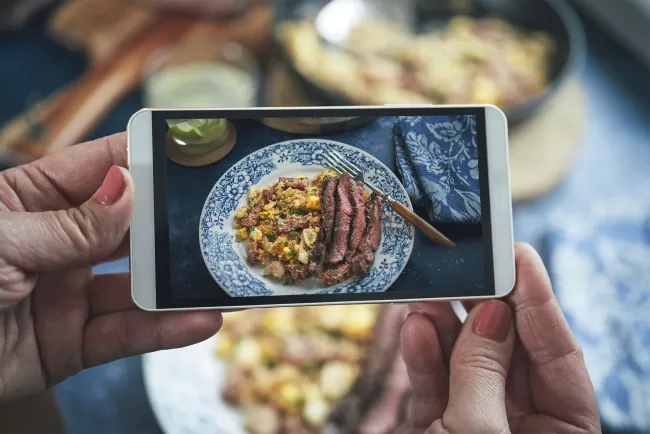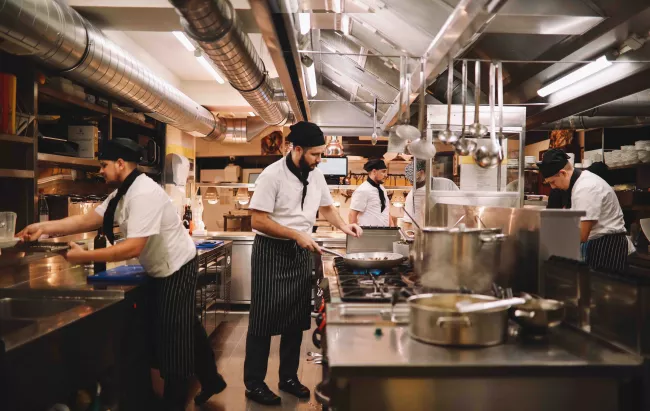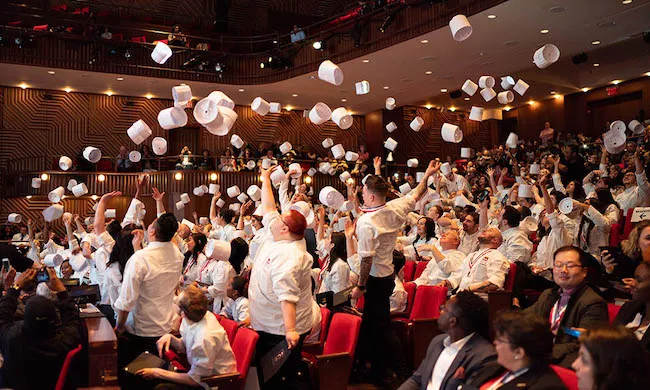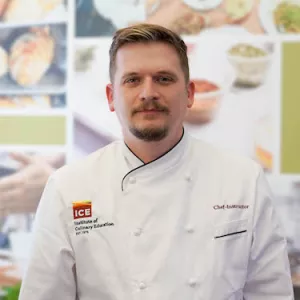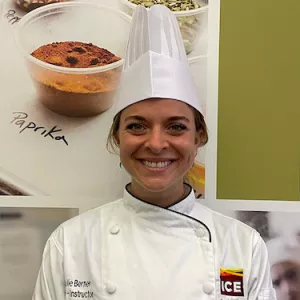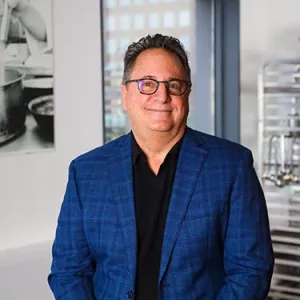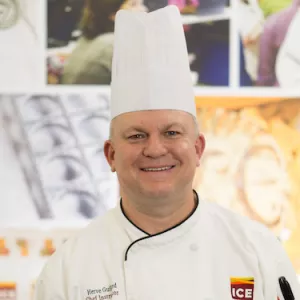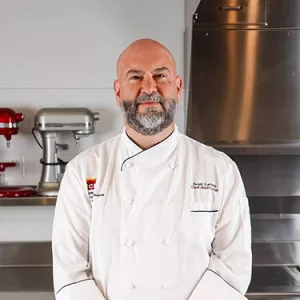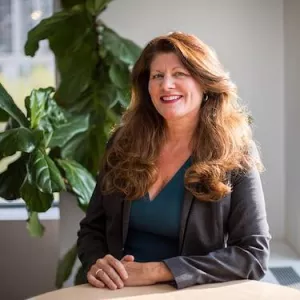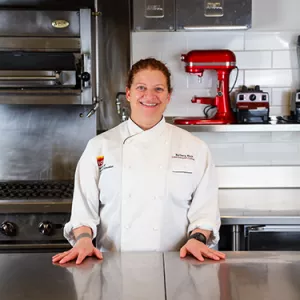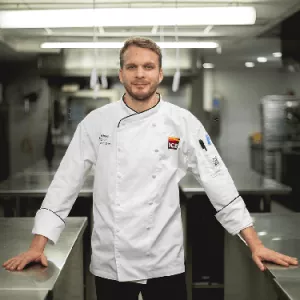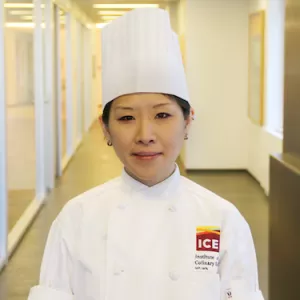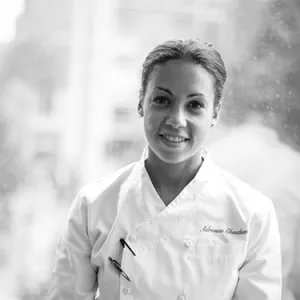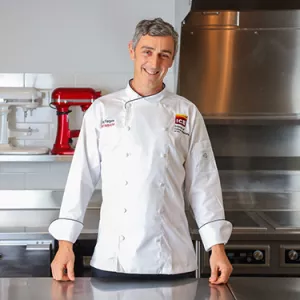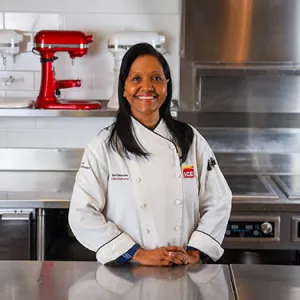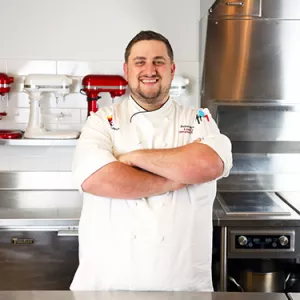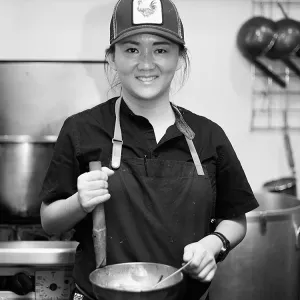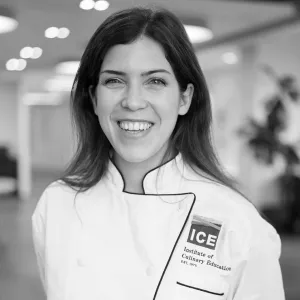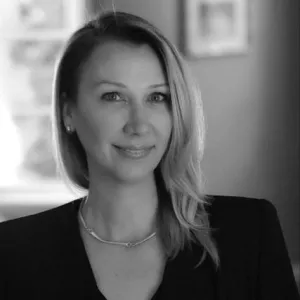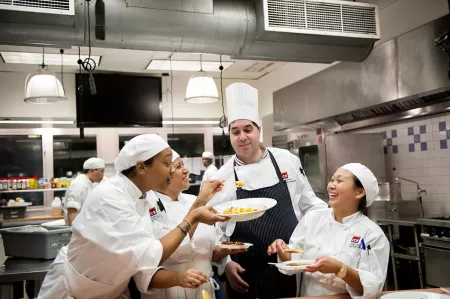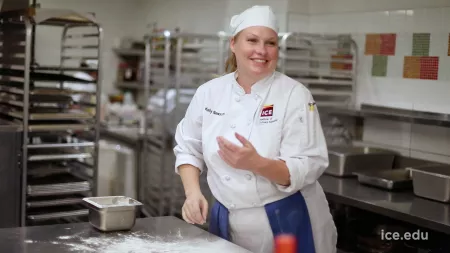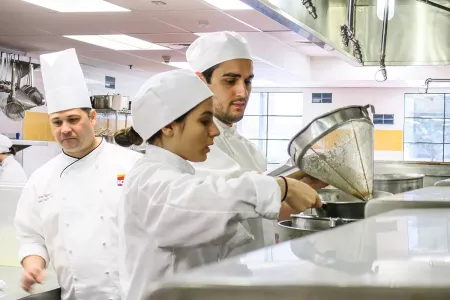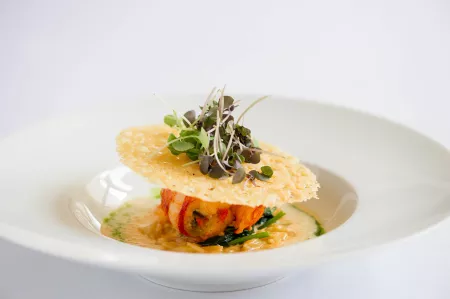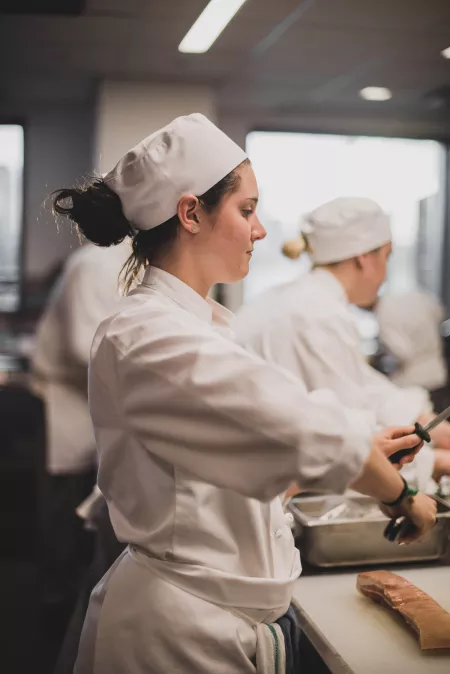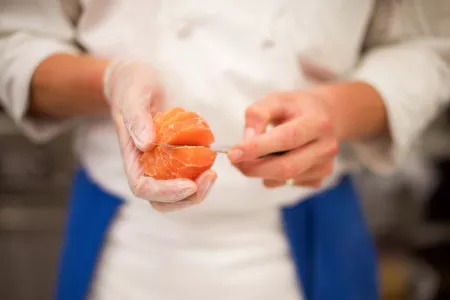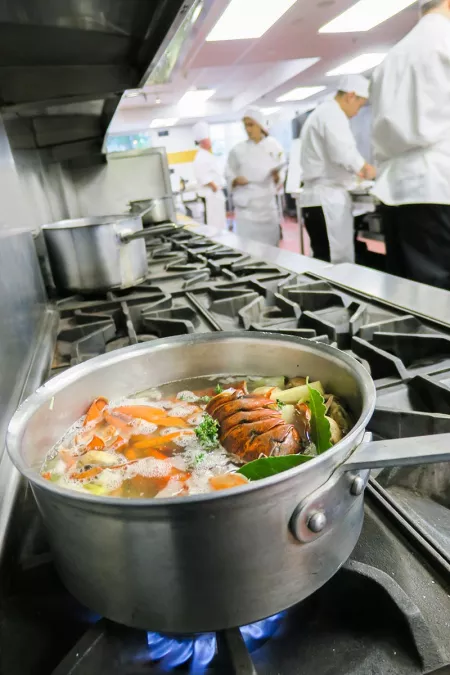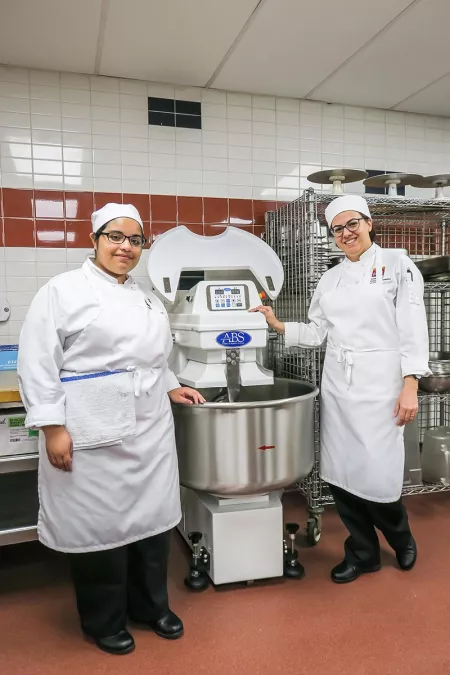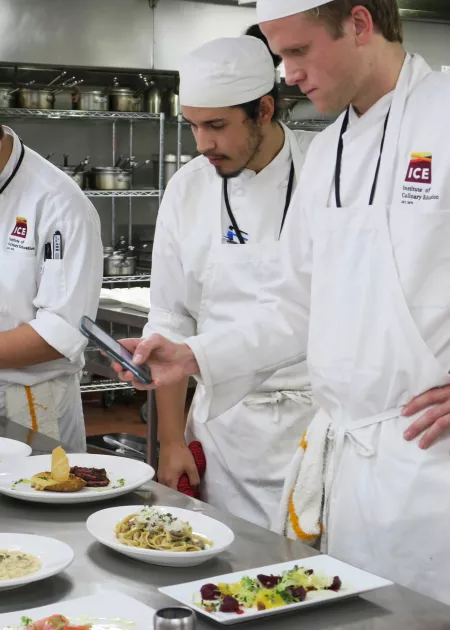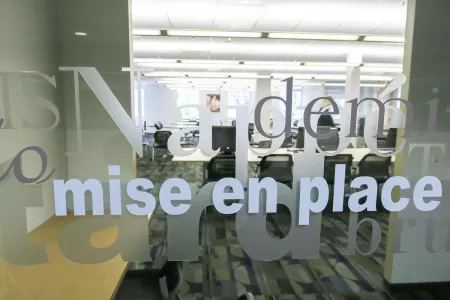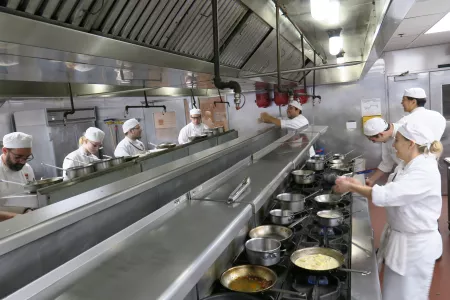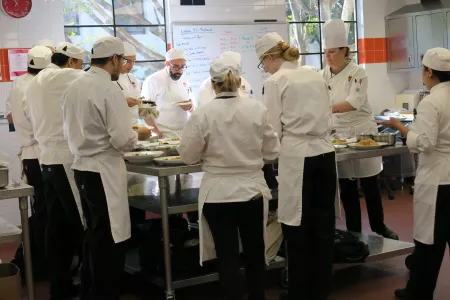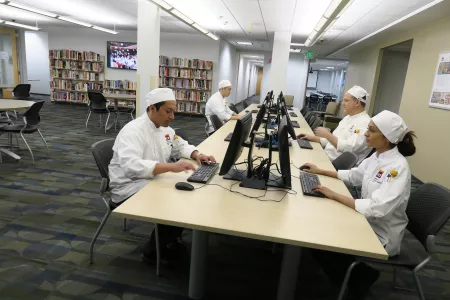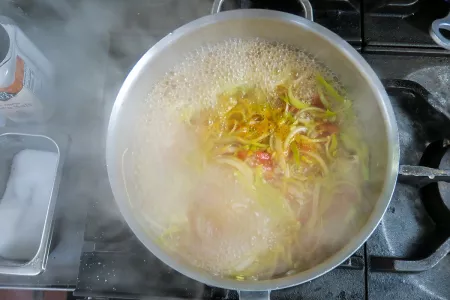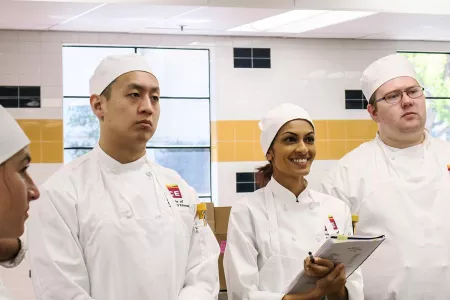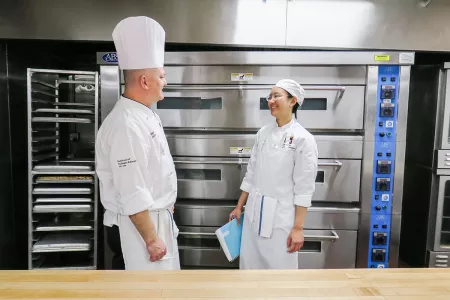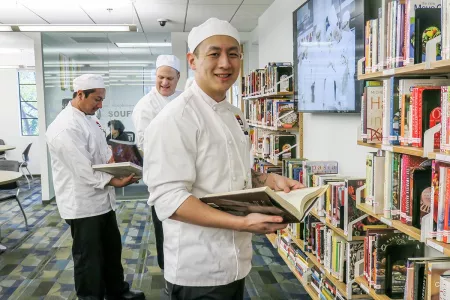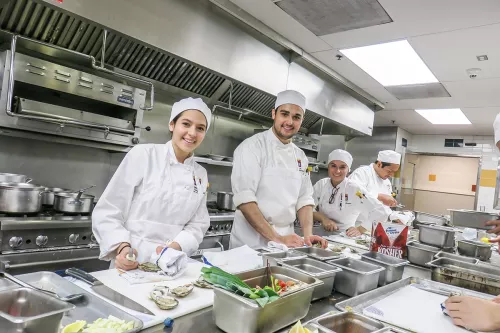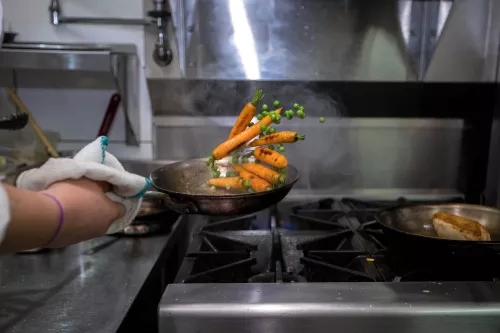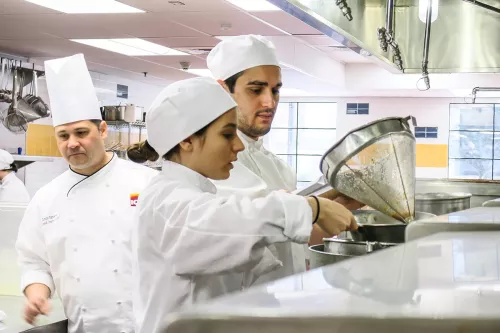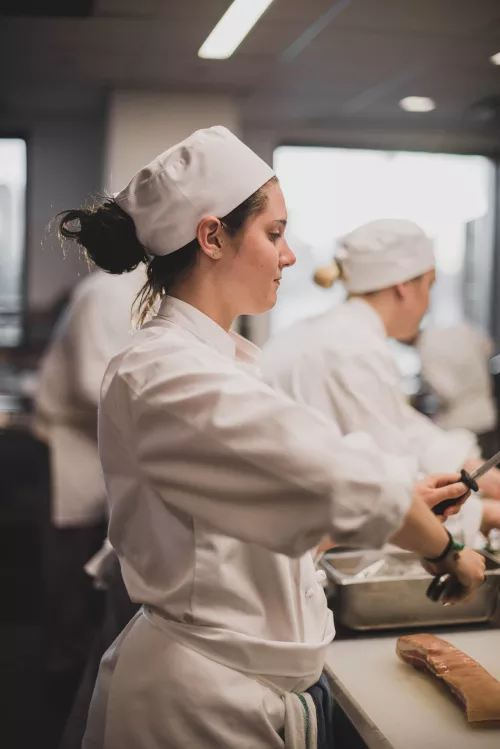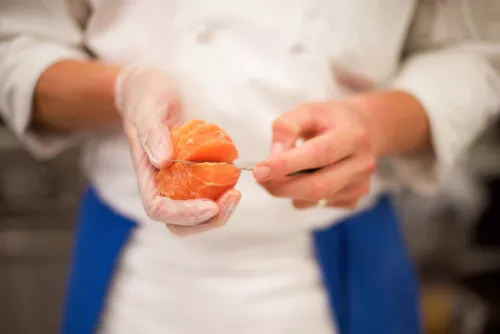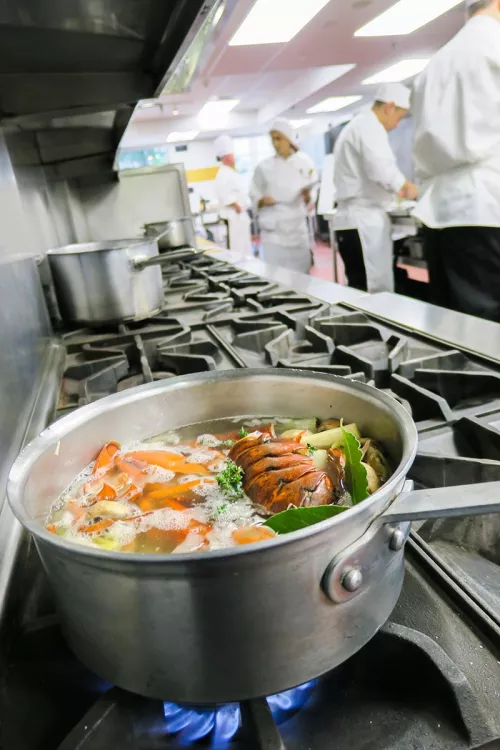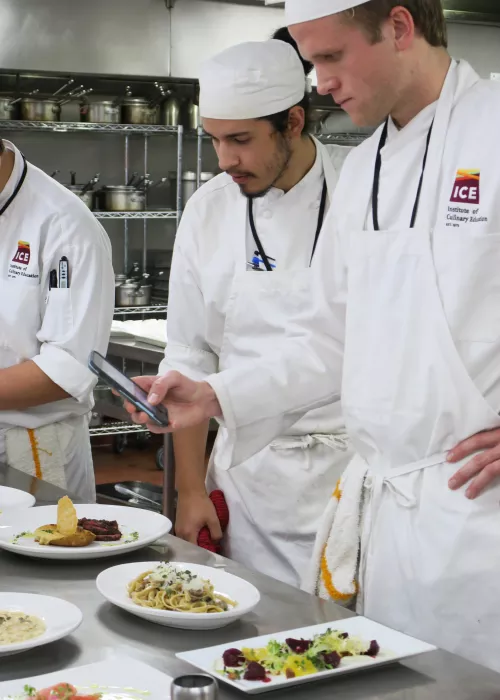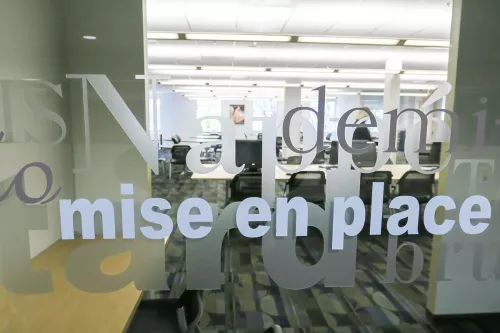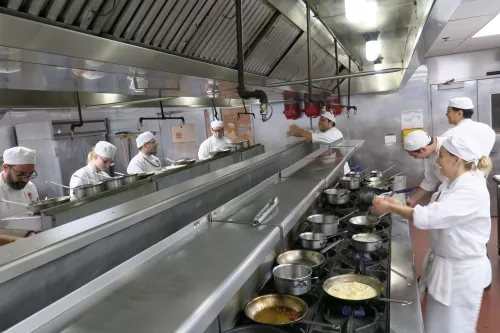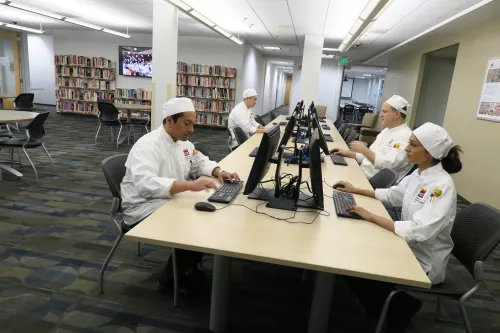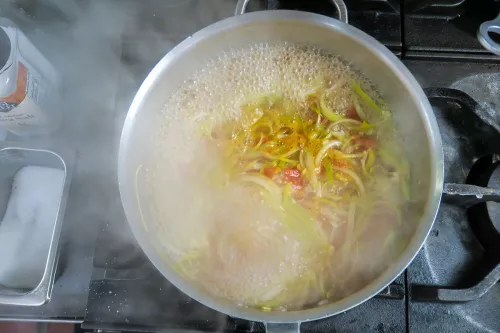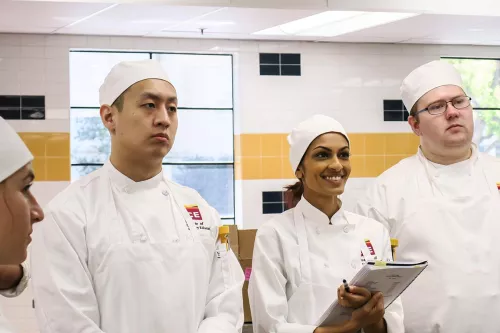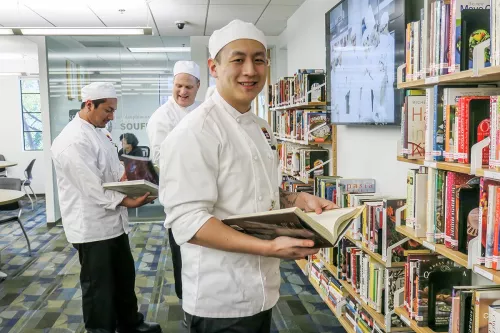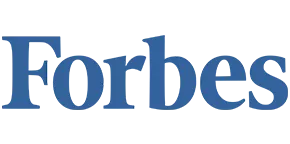Course 1
INTRODUCTION TO ONLINE LEARNING & RESTAURANT REALITIES
13 hours
This course is designed to familiarize students with best practices for success in our online program and in the restaurant industry. Topics include learning management system use, internet research and time management. We also introduce the tenets of professionalism and the expectations of the food service industry.
Course 2
CULINARY FUNDAMENTALS
90 hours
Most culinarians begin their training by learning how to pare and prepare greens and vegetables. After a comprehensive introduction to knife skills and food safety, students will use a range of methods for preparing vegetables, progressing from salads to complex vegetarian cuisine, to explore the techniques that underlie fine cooking.
Course 3
CONCEPT DEVELOPMENT & MENU DESIGN
21 hours
This course is designed to acquaint students with the realities of a culinary business by exploring concept development from creativity to profitability. By surveying the industry, students explore many types of operations and analyze concepts, as well as research feasibility and location selection. Students should gain the knowledge required to develop and refine their ideas. This course also covers key aspects of menus, including planning, pricing, layout and design. Students prepare sample menus as a project.
Course 4
CULINARY FUNDAMENTALS 2
60 hours
The first in a series of three courses on protein-based cuisine, this poultry-based course will cover key techniques like sautéing, roasting, braising and grilling. Students will fabricate the essential cuts and prepare stocks and sauces that completely utilize each ingredient. The class will prepare dishes to practice each technique and build confidence and competence.
Course 5
FOODSERVICE FINANCE
30 hours
A working understanding of numbers is critically important to culinary success. The curriculum for this course focuses on the use of financial statements as a tool for cost control and decision-making. The course progresses from teaching students how to associate numbers with financial and logistical aspects of a foodservice business to an overview of budgets, industry standards and variation analysis. Case studies are used to provide real world examples.
Course 6
CULINARY FUNDAMENTALS 3
60 hours
Pork is one of the most versatile meats, providing diners with everything from sausage and chops, to ribs and medallions. All of these cuts offer the opportunity for students to advance their culinary skills while exploring new flavors and plating styles. Lamb is also featured in this comprehensive course.
Course 7
SUPERVISION
27 hours
People are the most important resource in any culinary business. This course focuses on the major functions of management communication, hiring practices, recruitment, training, discipline and staff organization.
Course 8
CULINARY FUNDAMENTALS 4
60 hours
In this final course on protein-based cuisine, students prepare grilled steak, braises and stews along with brown sauces and pan sauces aiming to deepen understanding of fundamental techniques. The class applies these methods to seafood, as students prepare dishes that highlight the special skills that these foods require.
Course 9
PURCHASING & COST CONTROL
27 hours
Strategies for purchasing and control are vital for the success of any culinary operation. This course examines labor, beverage and food costs, and revenue control. Purchasing guidelines, inventory and control, employee-performance standards, productivity and scheduling, use of point-of-sale systems, computers, and new technology are also reviewed.
Course 10
PASTRY & BAKING
90 hours
The skills taught in this course are not just for desserts – they can be used in savory cooking as well. From custards and pizza to biscuits and cakes, students prepare specialties that can be part of exciting entrees or memorable finales to the dining experience.
Course 11
COMMUNICATIONS, SOCIAL MEDIA & PUBLIC RELATIONS
21 hours
Effective communication is essential for success in all areas of food service, from management to menus. This course uses media, including reviews, blogs, tweets, videos and press releases, for students to explore the relationship between restaurants, communication and public relations.
Course 12
RESTAURANT ESSENTIALS
60 hours
Students explore important restaurant staples with an emphasis on lunch, brunch and breakfast specialties from biscuits and gravy to Eggs Benedict. There is also an extensive exploration of sandwiches, fresh and dry pasta, and sauces.
Course 13
LEADERSHIP, TEAM BUILDING & CHANGE MANAGEMENT
21 hours
Great leadership goes beyond good management and permeates a culture. This course explores leadership variables and principles, the power of vision, the importance of ethics, the empowerment of people, understanding people, developing others, and performance management. Additionally, instructors help students identify their own leadership styles and how best to utilize them to maximize leadership through organizational change and team building.
Course 14
INTERNATIONAL CUISINE 1
60 hours
In the panoply of global flavors, Asian flavors and techniques exert a growing influence on culinary arts around the world. Understanding how to use the herbs, spices, ingredients and methods that characterize these cuisines is a necessity in today’s food culture. This course acquaints students with the flavor profiles, specific techniques and essential dishes of Asia and the Americas.
Course 15
INTERNATIONAL CUISINE 2
60 hours
Continuing the exploration of food from around the world, this course examines key dishes, ingredients, flavors and techniques from the Middle East, Europe and Africa.
Course 16
EXTERNSHIP
200 hours
This is the last course in the program where students have an opportunity to hone the skills they developed in a real-world setting. While ICE strongly recommends restaurant kitchen externships, students may request venues such as hotels, catering companies, corporate dining rooms or test kitchens in accordance with their professional goals.

